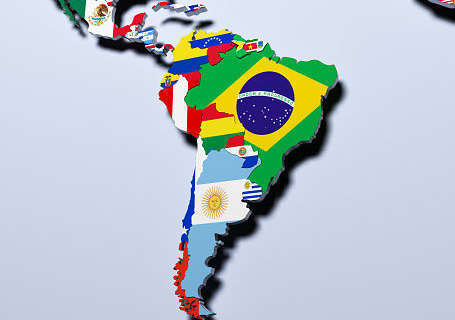BOGOTA, Colombia (AP) — Colombia for the first time elected a leftist as president, but the slim victory is a cue that a large portion of the country rejects the ambitious proposals of Gustavo Petro, who will have to consider their concerns and negotiate with a divided Congress to deliver on promises.
Petro, in his third attempt to win the presidency, on Sunday defeated by three percentage points another anti-establishment candidate, real estate tycoon Rodolfo Hernández.
They met in a runoff after the election’s first round rejected candidates of the centrist and right-leaning politics that have long dominated the South American nation. But Petro, a former rebel who is now president-elect, faces a steep road to carry out the changes his supporters want to see as Colombia struggles with inequality, inflation and violence.
“Petro has set very high expectations from his proposals, and when he delivered his victory speech, he sort of inflated those expectations,” said Silvana Amaya, a senior analyst with the firm Control Risks.
“Therefore, there is a lot of room for disappointment if he does not meet those expectations that the people, especially the young population, have right now because they are expecting life to be absolutely different from all those social reforms that he is proposing.”
Petro has proposed pension, tax, health and agricultural reforms and changes to how Colombia fights drug cartels and other armed groups. He wants the tax reform to finance social programs, including free higher education and subsidies for mothers who are heads of households.
His party, the Historic Pact, will have the most seats in the incoming Senate and the second-largest number of seats in the House. Still, he will lack a majority when the new Congress opens July 20, which likely will force him to make deals, curb some reforms or even ditch others.
Amaya said a negotiated, scaled-down version of Petro’s revenue-raising tax plan could be approved by Congress as the absence of one could put into question the government’s finances. But other plans will likely stall, she said.
In a nod to the resistance, Petro during his victory speech addressed the other half of Colombia that did not vote for him and proposed a “great national dialogue” that includes his staunchest opponents to achieve consensus.
“The fact that this platform took him to victory indicates that most Colombians believe that the state should take on a greater role in providing social services such as health, social security and education,” Erica Fraga, senior analyst with the Economist Intelligence Unit, a research group linked to the Economist magazine, said in a statement.
But, Fraga added, “if he does not show a willingness to compromise and moderate some of his radical proposals, his ability to deliver on his promises will be undermined, causing his popularity to dip and increasing the risk of social unrest.”
President Ivan Duque, a conservative who defeated Petro in 2018 but was not eligible for reelection, promised a “harmonious, institutional and transparent transition” before Petro takes office Aug. 7.
Claudia Lozada, a Petro supporter, offered her hopes for the new leader during a celebratory rally Sunday night.
“Colombia is praying for your government to be a government of change so that this generation, or at least the next generation, can say Petro made the best government because he was the president of the people and the president of the youth because it was the people who elected him,” Lozada said.
While the election overturned Colombia’s long stigmatization of the left over a five-decade civil conflict, there are many who are leery of Petro, who is now a senator but was a rebel with the now-defunct M-19 movement before he was pardoned and entered politics.
In his first message as president-elect, Petro sought to allay fears about his administration by assuring Colombians that “we are going to develop capitalism in Colombia, not because we adore it, but because we first have to overcome pre-modernity in Colombia, feudalism in Colombia, the new slavery.”
By finishing second, Hernández earned a seat in the Senate, but on Monday, he said he had not decided whether to take it.
The runoff also gave Colombia for the first time a Black politician as vice president — Francia Márquez, a lawyer and environmental leader whose opposition to illegal mining resulted in threats and a grenade attack in 2019.
While her election is historic, some see her as a potential obstacle for Petro because of her unwillingness to make concessions to traditional parties.
Sergio Guzmán, founder of the firm Colombia Risk Analysis, said Petro must show an openness to sharing Cabinet positions with other parties.
“We witnessed how unproductive Ivan Duque’s first year was by not giving into ‘pork barrel’ politics and yielding to the content of his initial package of laws then,” Guzmán said. “It is unlikely that the incoming president would like to repeat the same experience.”
Petro has said he will govern for the “nobodies,” meaning minorities and the poor, the latter making up 39% of the population, according to official figures from 2021.
In his first 100 days in office, Petro says, he aims to implement an emergency plan against hunger, introduce a “living income” for mothers who are heads of households and forgive the student loans of 10,000 people.
Analysts expect Petro’s policies to potentially worsen inflation, which has forced many Colombians to face hunger, and they predict it will have a negative impact on long-term growth. Some forecast a market selloff Tuesday when trading resumes after Monday’s holiday.
“In short, while we suspect that a Petro presidency may not be as radical as some fear, it’s likely to be characterised by growing concerns over public debt and a period of weaker growth,” William Jackson, chief emerging markets economist with the London-based Capital Economics firm, said in an analysis note.
___
Garcia Cano reported from Caracas, Venezuela.
Copyright © 2024 The Associated Press. All rights reserved. This material may not be published, broadcast, written or redistributed.







